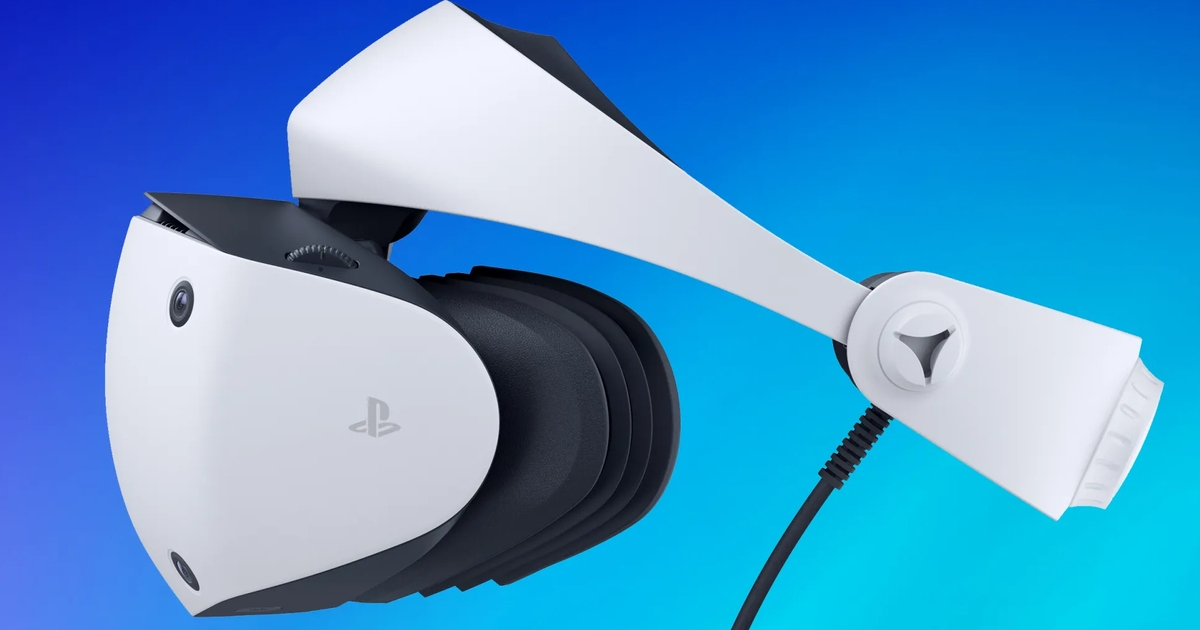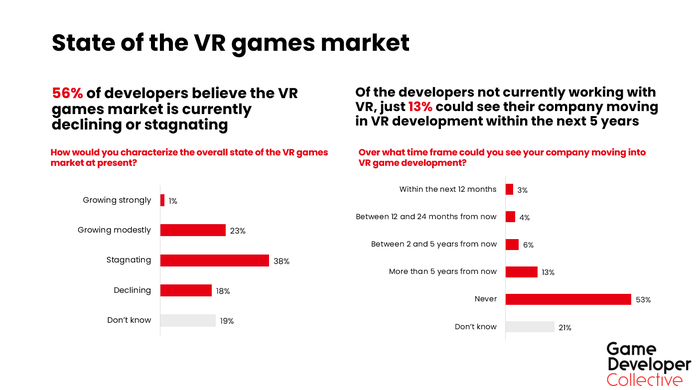IbizaPocholo
NeoGAFs Kent Brockman

Survey says half of developers consider VR market on decline or stagnation
Developers speaking to the Game Developers Collective seem to think the VR games market has hit a roadblock, even with this year's launch of the Apple Vision Pro.
The Game Developer Collective recently conducted a survey about virtual reality games. Of those asked, 56 percent find the market is "currently declining or stagnating."
38 percent believe the latter, and 18 percent the former. Conversely, 23 percent find that the market is growing modestly over time.
As with consoles, the price of VR headsets are a significant barrier of entry. The PlayStation VR2 has been hobbled by its initial $550 cost, and while Sony has yet to make a price drop, Meta has repeatedly lowered the prices of its Quest headsets (or made cheaper ones) to bring in more buyers.

Where do developers think the VR game market is right now?
In that same survey, 88 percent of developers said the VR market's biggest enemy is its "limited audience reach and market size." Other listed factors included difficulty in making comfortable, immersive experiences (38 percent) and a lack of funding or financial opportunities (35 percent).
Will your studio ever pivot to VR?
Of the developers not already making VR titles, 53 percent think their company will never pivot to VR. 13 percent think it will happen in the next five years, followed by between two and five years (6 percent), and one to two years (4 percent).



